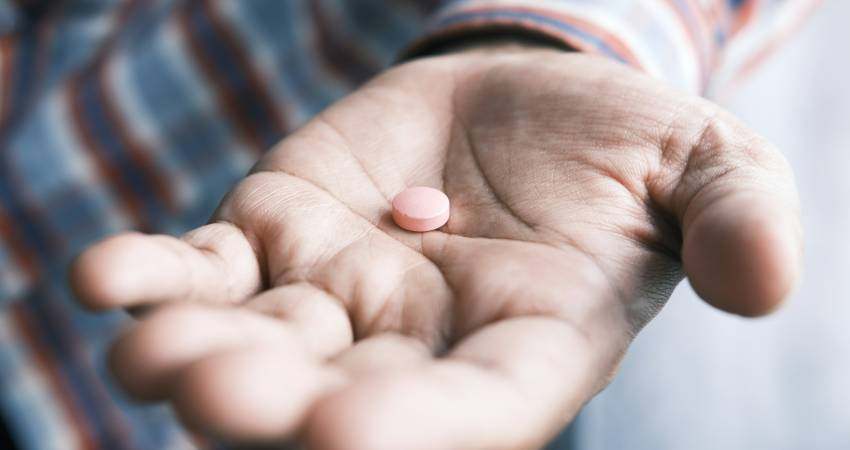
Two men charged after spiking their girlfriends with abortion pill
Image credit: Towfiqu barbhuiya via Unsplash
Two men have been recently charged in two separate cases after they spiked their girlfriend’s drink with an abortion pill, leading to both women miscarrying their unborn child.
In one case, according to the Daily Mail, 33-year-old Stephen Doohan, a former paramedic with the Scottish Ambulance Service (SAS), has been told he could face a lengthy jail sentence after pleading guilty to drugging his then girlfriend with the abortion pill without her knowledge.
The couple had met in Spain in 2021 whilst on holiday, and the woman discovered that she was pregnant with his child in March 2023, whilst Doohan was separated from his wife. Doohan proceeded to administer the abortion pill whilst at his flat, and when she suffered stomach cramps the next day, he gave her diazepam.
The woman had later found a syringe by the bed with crushed tablets and two white tablets that matched an internet description of “abortion tablets.” She later recorded a conversation with him where he confessed to his attempt to end the pregnancy saying that he “could not go through with it.”
The woman had last contact with Doohan in June 2023, and filed a complaint to the SAS, providing the recording of his confession, and he has since been let go from the SAS.
Mark Stewart, who is defending Doohan has said that Doohan was “deeply sorry” for what he did and that issues affected his “judgement and decision-making,” thus Judge Lord Matthews has agreed to allow bail so that Doohan can undergo further mental health assessments, but has warned him that he could face a lengthy jail sentence.
“You have pled guilty to an appalling offence. There will be no alternative to a custodial sentence and, I must say, a fairly lengthy one,” he said.
A SECOND CASE
In another recent case, Justin Anthony Banta from Texas was arrested a few weeks ago after an investigation into the accusations from his former girlfriend that he had also administered an abortion pill without her knowledge.
After sharing the news of her pregnancy, Banta’s ex-girlfriend had expressed that she wanted to keep her baby, whereas Banta had instead offered to pay for an abortion. She later went on to have a scan at 6 weeks where the doctor confirmed that the baby was healthy with a “strong heartbeat” and vital signs.
However, after the scan, she met with Banta in a coffee shop who had drugged her drink with the abortion bill without her knowledge or consent.
"Later that same day, the victim reported she met Banta at a coffee shop... where she expressed her suspicion that Banta had secretly added abortion-inducing pills to her drink without her knowledge or permission," the sheriff's office said in a statement.
They also said that investigators found that Banta had deleted "crucial evidence relating to the case" from his phone, and has since been charged with capital murder and tampering with evidence.
In Texas, due to the heartbeat law, it is illegal to have an abortion once a heartbeat has been detected, which in this case it was.
This is unfortunately not the first of these types of cases to make headlines. Back in October 2024, Stuart Worby, 40, was found guilty of administering abortion pills used in a chemical abortion, when she was 15 weeks, and then refused to take her to a hospital when she was experiencing severe abdominal pain. Worby was arrested when the woman found incriminating texts on his phone, between a friend who helped him obtain the abortion pills. One message had said "It's working, she's bleeding."
“We pay tribute to the bravery of the victim who has endured the most terrible loss, her courage to come forward and give evidence has been invaluable in ensuring a guilty verdict,” DCI Duncan Woodhams had said on the case.
Sandra Parda of the Life Institute commented, saying: “These cases are absolutely appalling, but sadly a classic sign of the consequence of legalising and normalising abortion.”
“Abortion advocates say that this is about choice, but cases like these show that it is clearly not. Women are often coerced into an abortion, whether by a partner, family member, or even just personal circumstance making them feel like they cannot raise a child,” she continued.
“Yet, instead of looking at what women really need, our governments, Ireland and the UK included, have instead made it much harder for women in these situations to get the help they really need, such as through the recent introduction of the buffer zones, and through allowing DIY abortions. We hope that cases like these serve as a wake up call to people so that they realise how vulnerable pregnant women really are, and how they need more support and not more abortions.”
Featured
- Abortion coercion has arrived in Ireland – the NWC are silent
- Review of at-home abortions 'needed after coercion case'
- French Govt to remind 29-year-olds of biological clock
- Huge factor in decline in primary school numbers ignored
- Germany Denies Promoting Abortion Abroad—While Funding Pro-Abortion NGOs
- Govt don’t oppose Coppinger abortion bill at 1st stage
- March for Life: Vance, the White House, and a Divided Pro-Life Movement
- Paris’ Annual March for Life Puts Euthanasia in the Spotlight
- Britain’s seemingly limitless abortion rate
- The importance of the work carried out by Every Life Counts
- Puerto Rico officially recognizes unborn children as ‘natural persons’
- Assisted suicide laws stalled by “complex” legal issues
- Yes, that hideous celebration of 300 abortions is real
- White Crosses Memorial: Dungarvan once again pays its respects to our aborted babies
- Josiah: Abortion Survivor
- Rally for Life 2025
You can make a difference.
DONATE TODAY